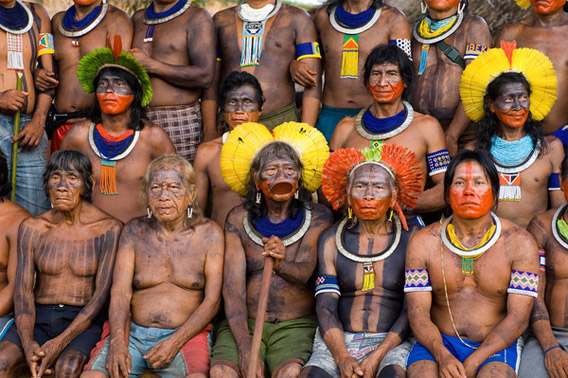Brazil refused to attend a hearing convened by the Inter-American Commission on Human Rights (IACHR) of the Organization of American States (OAS) over the the controversial Belo Monte dam, reports Amazon Watch, a group campaigning against the hydroelectric project.
The meeting, scheduled for Wednesday, “was intended to foster dialogue toward resolving conflict and discuss failures in protecting the rights of indigenous peoples threatened by the proposed Belo Monte hydroelectric dam in the Amazon Basin’s Xingu region of Brazil”, says Amazon Watch, which said the snub sets a “chilling precedent for human rights and sustainable development throughout the Americas.”
IACHR has requested explanation as to why the Brazilian government failed to show up at the meeting.
Jacob Kopas, an attorney with the Inter-American Association for Environmental Defense (AIDA) which is representing affected communities, said Brazil’s action could cast a pall over the anticipated Rio+20 biodiversity conference to be held next June.
“This flies in the face of the image Brazil promotes of a regional leader and host of important international environmental events like Rio +20 next year,” he said in a statement.
Sheyla Juruna, a leader of the Juruna indigenous people who would be affected by the proposed dam and traveled for days from the Xingu region to voice her concerns at the closed hearing, expressed disgust.
“The government’s constant refusal to dialogue and its undiplomatic posturing shows its negligence as it sidesteps the law and ignores the rights of local peoples,” she was quoted as saying. “I am appalled by the way in which we are treated in our own land without even the right to be consulted on this horrific project.”

Meeting of Kayapo leaders. © Cristina Mittermeier/ International League of Conservation Photographers (iCLP).
Belo Monte has proven extremely controversial. The $11-17 billion project, which would block most of the flow of the Xingu River and inundate thousands of hectares of rainforest, has been fiercely opposed by indigenous groups and environmentalists. Critics say the dam will operate well below capacity for much of the year when river levels are low. It will also disrupt fish migration patterns, affecting local livelihoods.
The concerns have triggered two legal setbacks in the past month. Last week a federal judge ruled the dam’s environmental license violates the constitutional rights of indigenous communities and is therefore illegal. Last month another judge ordered a halt to construction activities due to concerns over the impact on local fisheries.
Belo Monte is funded by Brazil’s development bank BNDES as well as a consortium of private companies, including mining behemoth Vale and meat processing giant Bertin.
Related articles
Last chance to see: the Amazon’s Xingu River

(06/15/2011) Not far from where the great Amazon River drains into the Atlantic, it splits off into a wide tributary, at first a fat vertical lake that, when viewed from satellite, eventually slims down to a wild scrawl through the dark green of the Amazon. In all, this tributary races almost completely southward through the Brazilian Amazon for 1,230 miles (1,979 kilometers)—nearly as long as the Colorado River—until it peters out in the savannah of Mato Grosso. Called home by diverse indigenous tribes and unique species, this is the Xingu River.

(06/03/2011) As an American I know a lot about shame — the U.S. government and American companies have wrought appalling amounts of damage the world over. But as an admirer of Brazil’s recent progress toward an economy that recognizes the contributions of culture and the environment, this week’s decision to move forward on the Belo Monte dam came as a shock. Belo Monte undermines Brazil’s standing as a global leader on the environment. Recent gains in demarcating indigenous lands, reducing deforestation, developing Earth monitoring technologies, and enforcing environmental laws look more tenuous with a project that runs over indigenous rights and the environment.
Amazon mega-dam gets final approval
(06/01/2011) Brazilian authorities gave final approval to the controversial Belo Monte dam, reports AFP.







